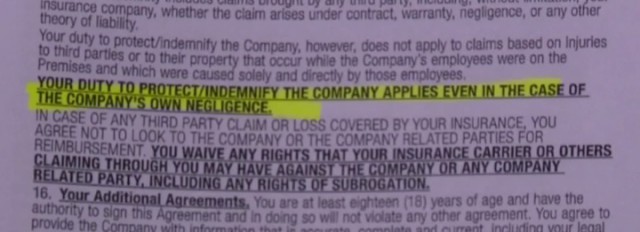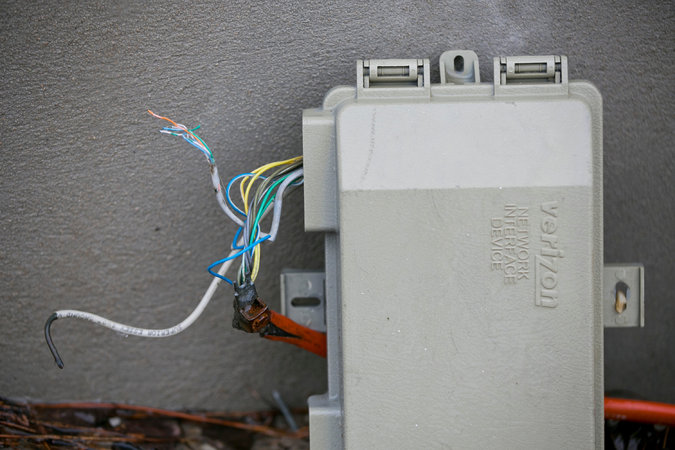
If it works properly
Comcast has blamed its customer for the failure of its home security system to detect a break in and alert police before intruders terrorized and tortured their son.
Last fall, Stop the Cap! told readers about the plight of the Rawat family, in Kirkland, Wash., who depended on home security services provided by Comcast and now wished they didn’t.
In November 2013, police say Vincent Sisounong and Blessing Gainey planned a home invasion to steal vehicles, electronics, and money from the family. To achieve their plan, the 21 and 19-year old had to defeat Comcast’s Xfinity Home security system. According to a lawsuit now being heard in a bench trial this week, the two men didn’t have to do anything because the system never worked properly.
After entering the Rawat home, the two planned to find the family’s 18-year old son Deep and “chop off one of his arms and legs with various cutting tools” as an intimidation tactic. The attack started in Deep’s bedroom. The two men dragged him to the basement, where Sisounong instructed Gainey to hack at Rawat’s leg down to the bone, and then stabbed Rawat himself. Court documents said Sisounong told detectives that he wanted the victim to “fight for his life,” and when asked if the experience was enjoyable, he said, “yeah.”

Sisounong (L) and Gainey (R)
For nearly half an hour, the struggle between the two intruders and Deep continued inside the home and finally ended when the intruders walked out the door. At no time did Comcast’s security system sound. The family had to ask neighbors to call police.
Comcast quickly blamed the family for not installing and using its system properly, despite the fact its installation was planned and performed by a Comcast subcontractor.
This week, the torture victim and his parents, Leena and Manoj Rawat, argued that Comcast and its contractor Pioneer Cable Contractors, Inc. improperly installed the Xfinity Home system. A recommendation from the installer placed the system’s motion detector in the basement, where it provided no protection when the family was home. The installer allegedly told the family they did not need window sensors because the motion detector was a suitable alternative. Although window sensors are usually constantly monitored, motion detectors are not when a family is home to prevent false alarms.
“This advice runs counter to every standard in the industry,” Rawat family attorney Ken Friedman argued during his opening arguments Monday. “The system as set up was useless, or in some cases worse than useless, because it provided a false sense of security.”
Friedman is also fighting to overcome Comcast’s terms and conditions, which require customers to protect Comcast’s interests above their own at all times, even when the company is found negligent. To emphasize the point, Comcast places it in bold, extra-large capital lettering:

Comcast’s security contract lets the company walk away from responsibility for almost everything.
YOUR DUTY TO PROTECT/INDEMNIFY THE COMPANY APPLIES EVEN IN THE CASE OF THE COMPANY’S OWN NEGLIGENCE.
“If their argument is to be accepted, they could put in empty black boxes throughout the house and say, ‘That’s your system.’ And then something goes wrong, and they say, ‘We never promised you it would work,’” said Friedman.

A better option?
The Rawat’s lawsuit alleges negligence, breach of contract and express and implied warranties, and a violation of the Washington Consumer Protection Act.
Comcast’s response is that their alarm system was never at fault.
“The malicious attack by the two criminals was motivated by pure evil and warrants every last second of punishment that they receive,” Comcast attorney Timothy Pastore said. “However, what happened to Deep Rawat is not the result of anything that Comcast or Pioneer did or did not do.”
Pastore claimed the family specifically ordered the alarm as it was installed, and it was working properly. The fault lied with the family because they failed to arm the system’s motion detectors by setting it to the “away” mode while they were asleep.
But if they had done as Pastore suggested, the motion sensor would have sounded the alarm if any family member moved around inside the home. The window sensors were designed to work at all times and would not sound unless a window was opened or broken. For added security and peace of mind, you can click here to visit Maverick Windows for free consultation and expert guidance in choosing the ideal windows for your home.



 Subscribe
Subscribe The New Jersey Board of Public Utilities (BPU) unanimously approved an agreement this week exempting Verizon from most basic landline service regulations, prompting immediate outrage from consumer, senior and labor groups who predict it will lead to rate increases and deteriorating service.
The New Jersey Board of Public Utilities (BPU) unanimously approved an agreement this week exempting Verizon from most basic landline service regulations, prompting immediate outrage from consumer, senior and labor groups who predict it will lead to rate increases and deteriorating service.
 Stefanie Brand, director of the New Jersey Rate Counsel saw the vote as a rush to Verizon’s business and profit agendas.
Stefanie Brand, director of the New Jersey Rate Counsel saw the vote as a rush to Verizon’s business and profit agendas. Bright House Networks customers in central Florida are not excited by
Bright House Networks customers in central Florida are not excited by 



 A security flaw exposed the personal data of millions of Charter Communications customers nationwide, including payment details, account holders’ names and addresses, and specifics about the equipment used to receive Charter service.
A security flaw exposed the personal data of millions of Charter Communications customers nationwide, including payment details, account holders’ names and addresses, and specifics about the equipment used to receive Charter service. “The vast majority of Charter customers use a version of the site on which this security vulnerability was not an issue,” a company spokesperson explained, noting the number of customers affected was less than one million. The company is auditing its systems, he said, and has so far “seen no evidence of any password or data hacks.” The exposed data did not include credit card numbers.
“The vast majority of Charter customers use a version of the site on which this security vulnerability was not an issue,” a company spokesperson explained, noting the number of customers affected was less than one million. The company is auditing its systems, he said, and has so far “seen no evidence of any password or data hacks.” The exposed data did not include credit card numbers.